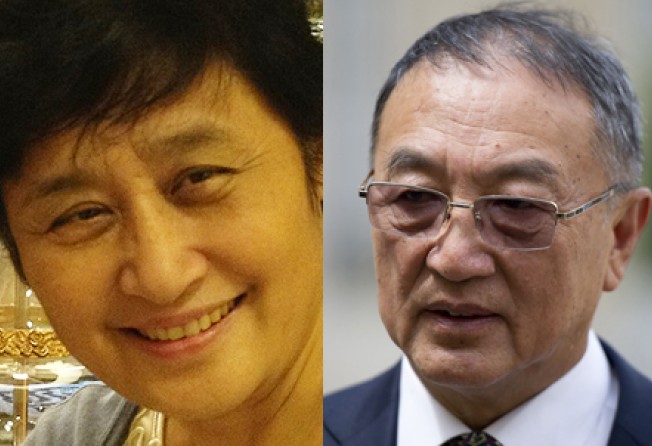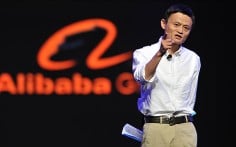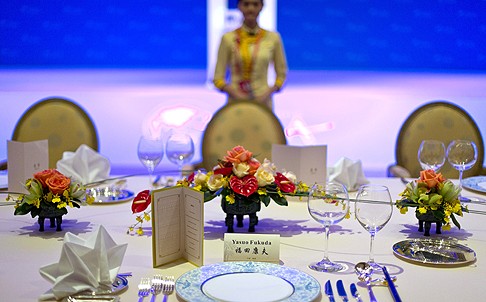
How a public spat exposed China's exclusive 'Facebook' for business elites
Don't mix politics and business? The discussion is a hot topic for members of Zhenghe Island, a social network for top Chinese business leaders

A quarrel among China's business elites has pulled back the curtain on an exclusive online social network site and exposed the traits of some of its members.
Zhenghe Island, which is basically Facebook for China’s powerbrokers, has more than 2,000 business heavyweights as members, including Alibaba’s Jack Ma and China Vanke chairman Wang Shi.
Last month, outspoken fund manager Wang Ying challenged Lenovo founder Liu Chuanzhi after Liu told some members at a social gathering organised by Zhenghe to “stay out of politics and talk only business”.
The remark later became the official position of Zhenghe Island, which prompted Wang to leave because she believes it is impossible to avoid politics while doing business in China.
The controversy escalated last week when Wang posted a public statement online to say she was withdrawing from the site and to further criticise Liu’s remark.
“I am not one of the entrepreneurs who do not talk politics, and I do not believe China’s business owners will survive if they kneel,” she said in her statement.
Zhenghe Island is the first internet platform to unite all business giants together
The quarrel has turned heads among netizens and exposes some of the secrets and conflicts inside Zhenghe Island, or Zhisland.com.
The bar to join the site is high. For admission, members pay a yearly fee of 30,000 yuan (HK$38,000) and must belong to companies with annual revenue of 50 million yuan or above.

In January, 200 club members attended a Zhenghe Yan at a five-star luxury hotel in Hainan. Zhenghe founder Liu Donghua, diplomat Wu Jianmin and TCL chairman Li Dongsheng were among the luminaries who delivered speeches at the dinner. The event included a fashion show and a concert as extravagant as mainland television’s yearly Lunar New Year gala.
Last year 50 members attended a smaller Zhenghe Yan in Zhengzhou city, in central China’s Henan province, where they dined on an organic feast and were entertained by a well-known band playing ancient Chinese music.
“Zhenghe Island is the first internet platform to unite all business giants together,” founder Liu said last month.
“Facebook’s stocks devalued even faster because we entered the market,” he joked.
Wang said she liked Zhenghe initially because it allowed members to meet people who share similar interests. Some users have moved their new-found friendships onto other platforms, such as mobile messaging service WeChat to continue conversations. More than 100 Zhenge groups have been formed on WeChat.
In November, Wang started a reading group on WeChat to discuss Robert’s Rules of Order, published in 1876 and used widely in the United States as the parliamentary authority. The aim of the group was to help entrepreneurs create rules and install more democratic management in their companies.
Zhenghe management, however, viewed the reading group differently. They were shocked when they discovered the group of 100 members had used methods in Robert’s Rules to elect group leaders, said Wang. “How could they take a reading group’s voting so seriously?” she said.
Mr Liu said that from now on we only talk about business, not politics. Under the current political and economic environment, doing business is our duty
The schism widened further when Zhenghe chief executive Huang Lilu posted and promoted Liu’s statement about business and politics.
“Mr Liu said that from now on we only talk about business, not politics. Under the current political and economic environment, doing business is our duty,” Huang posted, openly endorsing Liu’s idea on the site. That official stance was later confirmed by the club’s brand manager, Xu Zheng.
Wang told the Post: “The reason I criticise Liu is because, at this moment, he encouraged and fuelled a fear of politics that is spreading among Chinese business sectors.”
She said this fear was exaggerated.
“I’ve been devoted to public interest-related projects for 13 years, but I’ve never encountered danger,” she said. “I believe that the government and political party who cannot be criticised is in most need of criticism. If I’m in danger because I criticise, I think the state is in bigger risk than I am.”
Wang Gongquan, 52, a former venture capitalist, said the best way to overcome the politics of fear is to get involved. Besides managing a business, he has volunteered in a civic movement for more than a decade and is a former member of the Gongmeng movement, which calls for transparency and constitutional rule.
Wang is working to release his friend and Gongmeng founder, Xu Zhiyong. “The more I get involved, the less I fear. I’ve not broken the law nor do I have bad intentions. Why should I be in fear?” he said.
He thinks the recent controversy stemming from Zhenghe reflects a possible split among Chinese businesspeople.
“Chinese social problems may get more serious,” he said. “If the government is in control and force people to declare where they stand, it may divide the business sector.”
Fund manager Wang Ying said: “In the past 30 years, Chinese have become much more outspoken because societal development has provided space for one to grow. Still, it is very difficult and a long process to establish and maintain the conditions to prepare China for a peaceful transformation. A lot of people are needed to join hands to pass on the spirit.”
She and Wang Gongquan agreed that politics is hard to avoid while doing business in China.
Political governance often intervenes with business and many entrepreneurs are even CPPCC members, they pointed out.
IT investor Kong Jianping, 30, joined Zhenghe last year. Based in Hangzhou, he said the site had offered him the opportunity to exchange views with and learn from successful businesspeople.
He views Wang Ying as a role model, as do others who call her “Sister Ying”.
“She is one of the first pioneers to join the island and devotes great energy to build the platform,” Kong said.
He said he understood and respected Wang’s decision to withdraw from the club, saying it was driven by her strong sense of social responsibility and personal views on politics.
“The island begins with a mission and is a responsibility-driven entrepreneur social-networking service,” Kong said. “I think entrepreneurs ... should use their influence to bear more social responsibility. Otherwise it’s useless to appoint some entrepreneurs as CPPCC members.
“After all, the outside world should not read too much into the network’s standing on ‘business is business’. For Chinese entrepreneurs, creating value is perhaps more important.”

